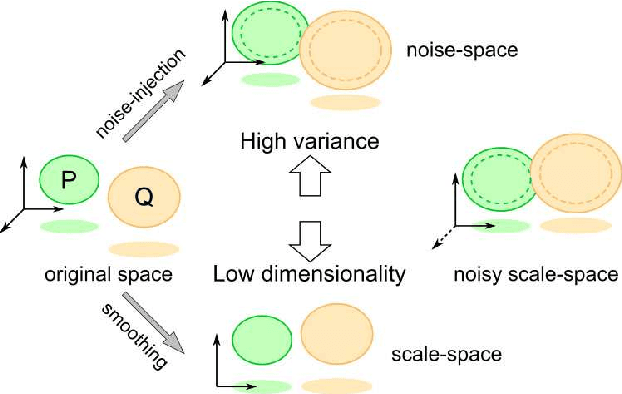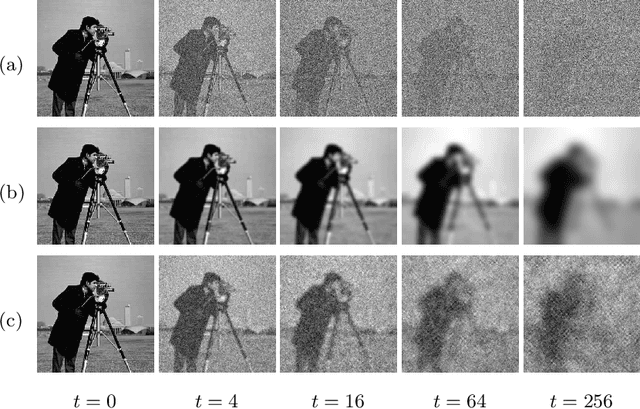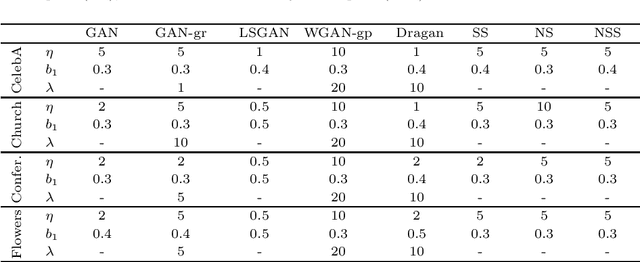Stabilization of generative adversarial networks via noisy scale-space
Paper and Code
May 04, 2021



Generative adversarial networks (GAN) is a framework for generating fake data based on given reals but is unstable in the optimization. In order to stabilize GANs, the noise enlarges the overlap of the real and fake distributions at the cost of significant variance. The data smoothing may reduce the dimensionality of data but suppresses the capability of GANs to learn high-frequency information. Based on these observations, we propose a data representation for GANs, called noisy scale-space, that recursively applies the smoothing with noise to data in order to preserve the data variance while replacing high-frequency information by random data, leading to a coarse-to-fine training of GANs. We also present a synthetic data-set using the Hadamard bases that enables us to visualize the true distribution of data. We experiment with a DCGAN with the noise scale-space (NSS-GAN) using major data-sets in which NSS-GAN overtook state-of-the-arts in most cases independent of the image content.
 Add to Chrome
Add to Chrome Add to Firefox
Add to Firefox Add to Edge
Add to Edge